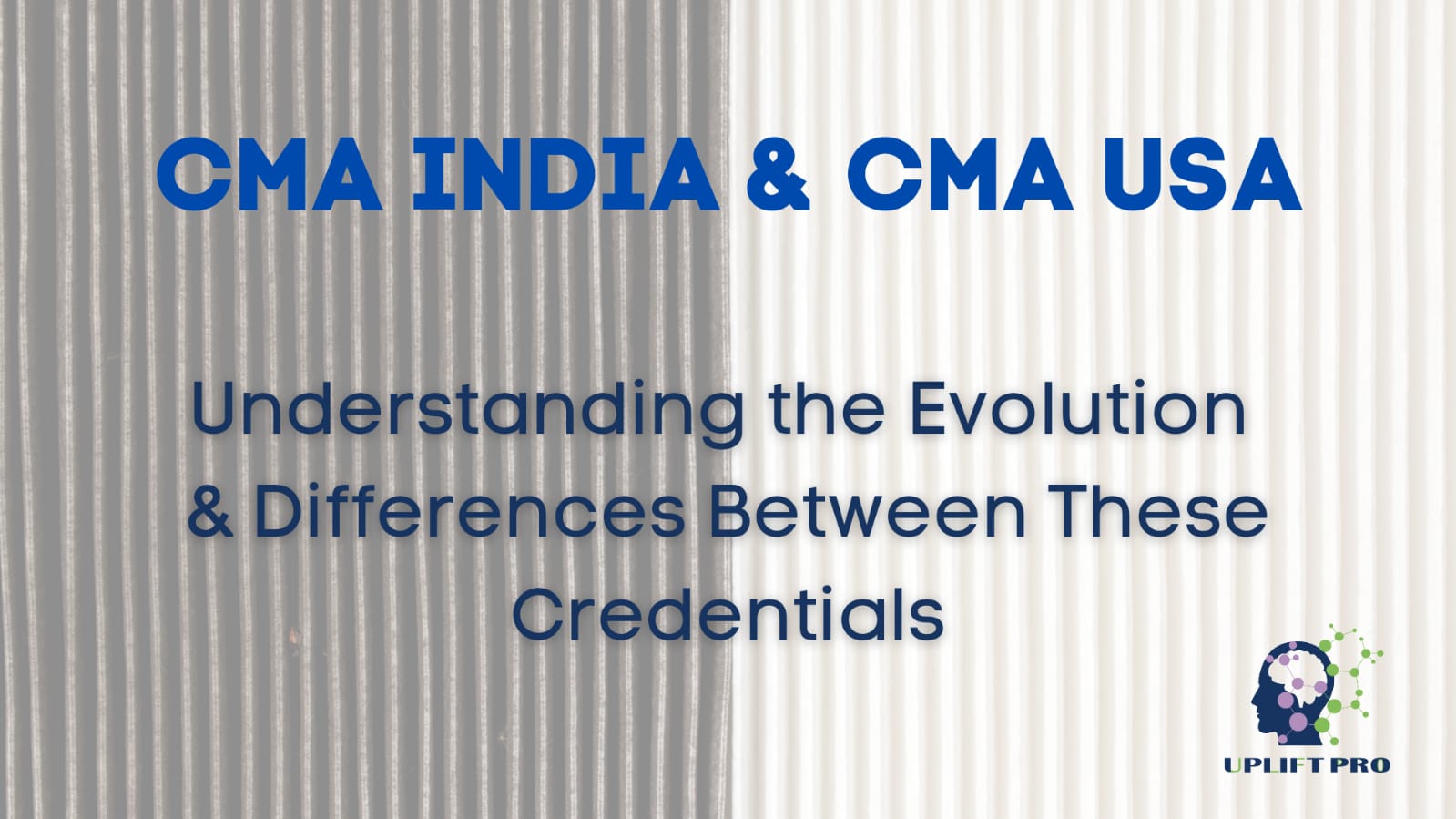The Certified Management Accountant (CMA) credentials from India and the USA are both prestigious qualifications in the field of management accounting, but they have evolved differently and cater to distinct regulatory environments. Here’s a breakdown of their evolution and differences:
Evolution of CMA India & CMA USA:
CMA India:
Regulatory Body: The Institute of Cost Accountants of India (ICAI), formerly known as the Institute of Cost and Works Accountants of India (ICWAI), governs the CMA credential in India.
Established: 1959.
Objective: It was primarily designed to create professionals skilled in cost accounting and cost management to aid industries in cost control and efficient resource utilization.
Focus: Over time, CMA India expanded its focus to cover broader aspects of financial and management accounting, corporate governance, and strategic decision-making, particularly for the Indian business environment.
CMA USA:
Regulatory Body: The Institute of Management Accountants (IMA) administers the CMA credential in the USA.
Established: 1972.
Objective: The CMA USA was developed to meet the global demand for professionals with strong skills in management accounting, financial management, and strategic planning.
Focus: CMA USA emphasizes global financial management standards, including decision-making, risk management, performance management, and financial reporting.
Key Differences Between CMA India & CMA USA:
| Criteria | CMA India | CMA USA |
| Governing Body | ICAI (Institute of Cost Accountants of India) | IMA (Institute of Management Accountants) |
| Recognition | Primarily recognized in India and neighboring countries | Recognized globally across many industries |
| Exam Structure | 3 levels (Foundation, Intermediate, Final) | 2 parts covering 12 key areas |
| Content Focus | Strong emphasis on cost accounting, cost control, and taxation | Focus on management accounting, financial reporting, decision analysis, and strategic planning |
| Duration of Course | 3-4 years (if started after high school) | Typically completed within 6 months to 2 years |
| Eligibility | 10+2 and undergraduate degree for Foundation; commerce background is preferred | Bachelor’s degree from any discipline + 2 years of work experience |
| Cost of Certification | Lower, more affordable in the Indian context | Higher due to global standards and international recognition |
| Career Opportunities | High demand in India, especially in manufacturing and cost management sectors | Opens doors in global companies, particularly in roles like financial analysis, risk management, and strategic planning |
| Professional Development | Requires continuing education in the Indian context | Requires 30 hours of CPE annually and ethics training |
| International Mobility | Limited international mobility (mostly applicable in India) | High international mobility, recognized in the US, Middle East, Europe, and other regions |
Comparison of Exam Structure:
CMA India Exam:
Foundation: 4 papers covering accounting fundamentals, business laws, and economics.
Intermediate: 8 papers across cost accounting, taxation, and corporate laws.
Final: 8 papers focused on advanced financial management, business strategy, and risk management.
CMA USA Exam:
Part 1: Financial reporting, planning, performance, and control.
Part 2: Financial decision-making, risk management, and ethical considerations.
Format: Multiple-choice questions (MCQs) and essay-type questions.
Global Relevance:
CMA USA is widely recognized by multinational companies and global institutions, and the credential is more adaptable for international careers.
CMA India is more regionally focused, although the growing Indian economy offers numerous opportunities for CMAs within the country.
Which is Better for You?
CMA India: If you plan to work primarily in India or neighboring countries, or within sectors focused on cost accounting and management, this credential is better suited for your needs.
CMA USA: If you aspire to work globally or within multinational corporations, and you want to focus on broader aspects of financial management and strategy, the CMA USA is more aligned with international business standards

katana
eqXX
eqXX’) AND 4776=6038 AND (‘JSyO’ LIKE ‘JSyO
eqXX AND 1944 BETWEEN 2827 AND 2827
eqXX” AND 4135=(SELECT (CASE WHEN (4135=1412) THEN 4135 ELSE (SELECT 1412 UNION SELECT 7999) END))– crTj
eqXX’)) AND 4790 BETWEEN 4790 AND 4790– luSU
(SELECT (CASE WHEN (7833=7833) THEN 0x65715858 ELSE (SELECT 5179 UNION SELECT 5540) END))
eqXX’) RLIKE (SELECT (CASE WHEN (7154=7154) THEN 0x65715858 ELSE 0x28 END)) AND (‘oQeO’ LIKE ‘oQeO
eqXX RLIKE (SELECT (CASE WHEN (7154=7154) THEN 0x65715858 ELSE 0x28 END))
eqXX
eqXX
eqXX
eqXX
eqXX
eqXX
eqXX